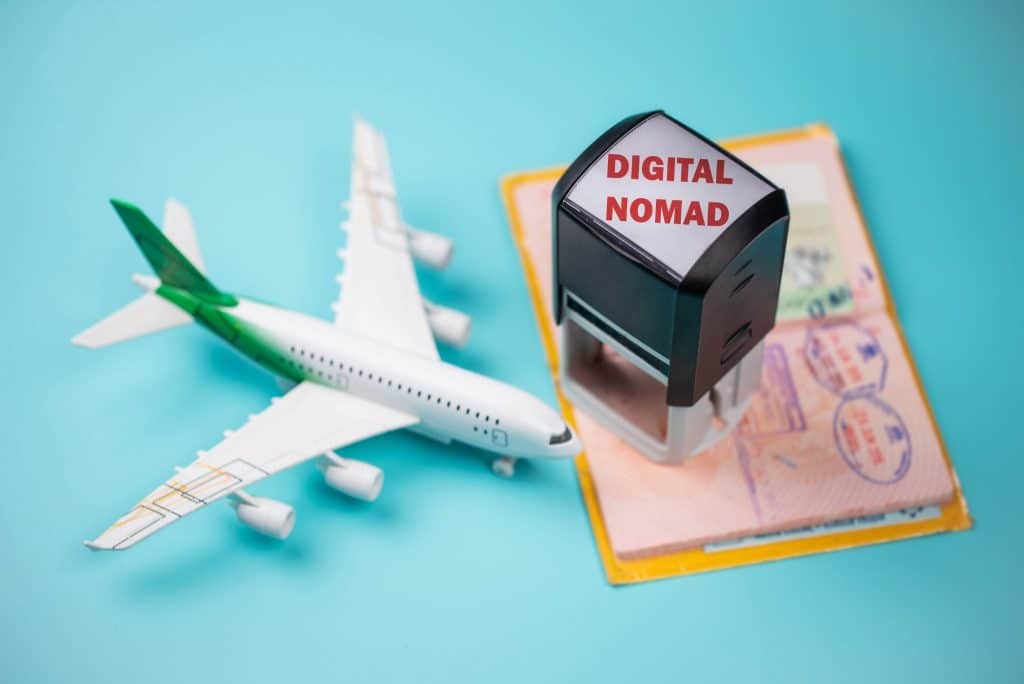Ever dreamed of working remotely while traveling the world? You’re not alone. Digital nomad visas are becoming increasingly popular among remote workers, freelancers, and entrepreneurs eager to experience new cultures without compromising their careers.
A digital nomad visa allows you to legally live and work abroad temporarily, typically from several months to two years. If adventure is calling, here’s a detailed guide to obtaining a digital nomad visa—including the application process, essential requirements, and top countries welcoming remote workers.
What Exactly Is a Digital Nomad Visa?
A digital nomad visa is essentially a specialized residency permit tailored specifically for remote workers. Unlike typical tourist visas, digital nomad visas enable you to earn income legally in the host country, provided the work is conducted online and for foreign clients or employers. These visas grant a fantastic opportunity to blend productivity with exploration.
Benefits of Obtaining a Digital Nomad Visa
There are several compelling reasons why obtaining a digital nomad visa could enhance your remote working lifestyle:
- Legal Work Authorization: Secure official residency and the legal right to work remotely from abroad—no more visa loopholes or gray zones.
- Deeper Cultural Immersion: Stay longer and truly experience the local culture, cuisine, and community beyond the surface-level tourism.
- Flexible Stability: Enjoy a more stable living arrangement without giving up your ability to travel or relocate within the country.
- Cost of Living Advantages: Many nomad-friendly countries offer significantly lower living expenses compared to major Western cities, helping you save more while living well.

How to Apply for a Digital Nomad Visa
The application process for a digital nomad visa generally follows similar steps across various countries, although specific requirements differ slightly:
Step 1: Check Your Eligibility
Different countries set distinct eligibility criteria, but commonly you’ll need:
- Proof of remote employment or self-employment.
- Minimum monthly income (typically around $1,500-$3,000).
- Comprehensive health insurance valid internationally or in the host country.
- Clean criminal background check.
- A valid passport (usually with at least six months validity remaining).
Step 2: Prepare Essential Documents
You will typically need to prepare:
- Passport-sized photographs.
- Valid passport.
- Employment or freelance work documentation.
- Financial statements or bank statements demonstrating your financial stability.
- Proof of accommodation arrangements.
- Health insurance documentation.
- Criminal record certification.
Step 3: Submit Your Application
Most countries allow you to submit your digital nomad visa application online through an official immigration portal. This process often involves uploading your documents, filling out an application form, and making a payment. Some destinations, especially in Europe or the Caribbean, might require you to book an appointment at a local embassy or consulate for an in-person interview.
Make sure all documents are complete and up to date before submission to avoid delays. Double-check the file format and size guidelines for uploads. Application fees typically range from $100 to $400, depending on the country, and are usually non-refundable.
Step 4: Approval and Next Steps
After submission, processing times vary by country—from a few weeks to several months. Some countries offer status tracking, while others may notify you only upon a final decision. Use this time to:
- Confirm your travel and relocation plans.
- Secure temporary or long-term housing in your destination.
- Arrange pet care, family accommodations, or schooling if applicable.
- Prepare necessary vaccinations or travel documents.
If approved, you’ll usually receive either a digital approval letter or a visa stamp in your passport. Some countries may require you to register locally upon arrival. Be sure to check any post-arrival obligations, such as local health insurance registration or residence permits.

Top Destinations Offering Digital Nomad Visas
Whether you’re dreaming of beaches, historic cities, or lush nature, many countries now welcome remote workers through dedicated visa programs. Each offers its own perks—from lifestyle and climate to cost of living and community. Here are some of the most popular and practical destinations for digital nomads:
1. Portugal
Portugal has become a hotspot for digital nomads, especially in cities like Lisbon and Porto, thanks to its warm climate, friendly locals, and excellent infrastructure. The country is also relatively affordable by Western European standards, making it ideal for long-term stays.
The D7 visa is a popular choice for remote workers with stable income. Though originally designed for passive income earners and retirees, it has become a go-to for digital nomads who meet the financial criteria.
- Validity: 1 year initially, renewable for up to 5 years
- Minimum income requirement: ~€800/month
- Bonus: Access to Portugal’s healthcare and public services
2. Estonia
Estonia has positioned itself as one of the most digitally advanced countries in the world. With e-residency, paperless bureaucracy, and fast internet even in rural areas, it’s a great base for location-independent workers who value tech-savvy infrastructure.
Their dedicated Digital Nomad Visa is one of the first in Europe. The application process is relatively simple, but you must prove a stable income and remote work arrangement.
- Validity: Up to 1 year
- Minimum income requirement: €3,504/month
- Bonus: Ideal for freelancers and tech professionals
3. Barbados
Barbados offers the perfect setting for those who want to work from paradise. White sand beaches, a laid-back lifestyle, and friendly communities make it a top pick for sun-loving nomads. The cost of living can be high, but the environment is hard to beat.
The Barbados Welcome Stamp was one of the earliest digital nomad programs launched during the pandemic, designed to attract long-term remote workers.
- Validity: 12 months, renewable
- Minimum income requirement: $50,000/year
- Bonus: Bypass local income tax during your stay
4. Costa Rica
Costa Rica is ideal for nature lovers who want to blend work with eco-friendly living. From tropical rainforests to peaceful beaches, the country’s diverse landscapes offer endless opportunities to unwind after work hours.
The digital nomad visa is an extension of Costa Rica’s already popular temporary residency programs. It’s particularly attractive to U.S. citizens due to geographic proximity and the country’s overall safety and healthcare.
- Validity: 1 year, extendable to 2 years
- Minimum income requirement: $3,000/month (or $4,000 with family)
- Bonus: Tax exemption on foreign income
5. Croatia
Croatia offers a charming mix of historical cities, stunning Adriatic coastlines, and a growing expat community. Cities like Split and Dubrovnik have become hotspots for digital workers due to their beauty and relatively low cost of living compared to Western Europe.
Its Temporary Stay Visa for Digital Nomads has made it easier than ever for non-EU citizens to base themselves in the country. The government actively supports remote workers, and you can even apply while already in Croatia on a tourist visa.
- Validity: Up to 1 year
- Minimum income requirement: ~€2,300/month
- Bonus: No local income tax obligations

Tips for Successful Visa Application
Applying for a digital nomad visa can be straightforward if you follow these key tips:
- Start Early: Visa approval timelines can be unpredictable, so apply months before your intended travel.
- Financial Preparation: Clearly document income sources and financial reserves.
- Insurance Matters: Comprehensive international insurance is critical.
- Transparency is Key: Always provide accurate information to prevent delays or rejection.
Pros and Cons of a Digital Nomad Visa
Understanding the benefits and drawbacks will help you decide if this visa aligns with your goals:
Pros:
- Legal clarity and reduced risk of visa issues.
- Opportunity for deeper cultural engagement and local networking.
- Professional opportunities through interactions with fellow digital nomads.
Cons:
- Bureaucratic processes can sometimes be slow and cumbersome.
- Some countries set high minimum income thresholds.
- Potential complications around taxation based on your home country’s rules.
Begin Your Adventure
Obtaining a digital nomad visa offers an exciting gateway to combining your professional life with the adventures of international travel. By preparing well and choosing the right destination, you can seamlessly integrate productivity and exploration. Begin your application process today and embark on your global journey as a digital nomad!
Stop just dreaming about your next trip and start planning it like a pro. Viral Voyage delivers real, tested travel hacks so you can explore the world on your terms.



